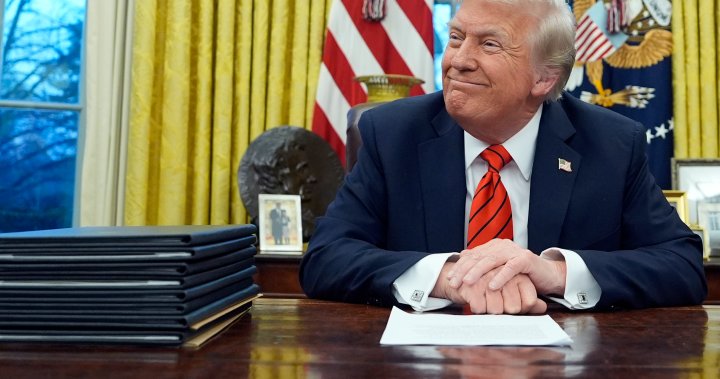Canada
Trump threatens Canadian cars with tariffs up to 100%

U.S.-Canada Trade Tensions Escalate: Tariffs and the Auto Industry
The relationship between the United States and Canada is facing a significant challenge as President Donald Trump threatens to impose steep tariffs on Canadian-made cars. This move comes in addition to the already announced 25% tariffs on steel and aluminum, which have sparked concerns about the impact on both nations’ economies. Trump, in a recent interview with Fox News, criticized Canada for what he perceives as unfair trade practices in the automobile industry. He claimed that Canada "stole" the industry from the U.S., blaming it on American complacency. Trump warned that if a satisfactory trade deal is not reached, the U.S. could impose tariffs of 50% to 100% on Canadian cars, emphasizing the desire to revitalize Detroit’s auto manufacturing sector.
A Historical Perspective: The Canada–U.S. Auto Pact
The automobile manufacturing sectors of Canada and the United States have been closely intertwined since the 1960s. In 1965, the Canada–U.S. Automotive Products Agreement, commonly known as the Auto Pact, was signed by then-Prime Minister Lester B. Pearson and U.S. President Lyndon B. Johnson. This agreement eliminated tariffs on cars and car parts between the two countries, fostering a mutually beneficial trade relationship. The Auto Pact remained in effect until 1994, when the North American Free Trade Agreement (NAFTA) took over, expanding free trade to all sectors. NAFTA was later replaced by the Canada-United States-Mexico Agreement (CUSMA) in 2018, which is set to be renegotiated in 2026. The current tensions threaten to disrupt this long-standing partnership.